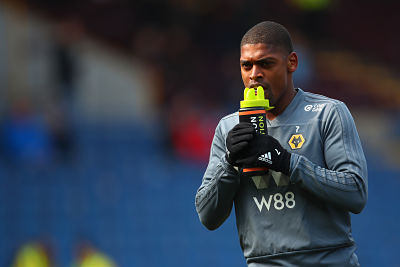We caught up with Dr Mayur Ranchordas, the Head Nutritionist for Wolverhampton Wanderers, to identify areas of performance where endurance athletes can learn from Premier League footballers.
Mayur discusses the challenges of getting fuel on board during games, post-match nutrition and recovery...
Hi Mayur, you’re a keen triathlete and work with Premier League footballers on a daily basis, so you're well placed to answer our burning question - 'what can triathletes learn from pro footballers'?
Good question! That's a tricky one because the two sports are so different. Football players rarely train on their own so the team sessions are great for competitiveness, team work and general camaraderie.
So, I guess there's some crossover for endurance athletes in that training as part of groups and teams can help you develop your competitive edge.
In terms of nutrition and recovery, players have access to the latest sport science and recovery hardware as they usually work with great practitioners. So, the recommendation for endurance athletes here would be to find their own sport science support team in order to access the latest cutting edge strategies.

On the subject of nutrition and recovery, how do players approach post-match fueling in order to improve recovery?
I find it best to break post-match fueling down into three parts.
Part 1 is immediately after the match – this is where the recovery shake is consumed, fluid is drunk and players typically tend not to eat food.
Part 2 is several hours after the match and this is where we need to make sure that players eat a good nutritious meal with quality protein and some casein protein before bed time.
Part 3 is usually the next day where the morning breakfast is important and offers a great window to continue that recovery process.
Recovery was vital when some Wolves players played 3 games in 9 days for their country during the European Championships. What are the challenges of trying to maintain performance during such a busy period?
There are three main aims when it comes to recovery for playing matches so close together:
- Replenish glycogen stores, especially type 2 muscle fibres as they take 48 hours to fully replenish
- Rehydrate using fluid and electrolytes
- Reduce DOMS and get the player to feel fresh for the next match
And those three areas then come with an overarching challenge of getting player 'buy in'. So, make sure that players engage with the various stages of recovery (i.e. immediately after the match, a few hours after, and also in the following 24-48 hours).
A lot of players lose their appetite after the match so it can be tricky to get them to eat enough.
I imagine getting fuel on board during games is difficult too, so how much carb would players typically consume during a half-time break?
The 15-minute break at half-time doesn’t offer much of a window but for a normal league match, most players would consume around 20-30g of carb at half-time. The format varies based on player preference, so some players will use gels, bananas or isotonic drinks, while some like to mix and match.
For cup games we try to encourage players to consume a bit more at half-time and advise players to take on a gel and isotonic drinks in the second half when they can, just so they're well fueled if the game goes into extra time.

On a similar theme, Rollo’s recently study showed players consumed ~15g of carbs on average during 60-70 minute training sessions. In your experience, how individualised are players’ nutritional intakes?
We rarely use carbohydrate during training sessions. Exceptions to this are when we have fixture congestion (i.e. 2-3 games with 2-3 days of recovery in between and sometimes during pre-season where we train twice per day).
For matches, we educate the players and recommend carbohydrate intakes based on weight (i.e. g/kg) and playing style. For example, the players that cover more distance at higher intensities (e.g. midfielders) tend to eat more carbohydrate than central defenders.
Interesting, stats show PL players cover an average of 10.5km per game, with midfielders covering about 11km during a 90-minute match. Pre-match nutrition and hydration will be important to fuel such sustained efforts, so how individualised are players’ nutritional intakes before the game?
It's worth bearing in mind that not all of this distance will be high intensity and there are periods of walking and jogging. We advise players based on their weight (i.e. g/kg) and playing style and they usually start adapting their diet from lunchtime onwards on the day before the game.
We give out individualised PH drinks with the players’ evening meal the night before and again 3 hours before the match. The weather on match day will usually dictate the hydration strategy but this will also be individualised based on the testing we’ve done on their sweat rates and electrolyte losses.
Finally, Rollo's study found that players don't develop hypohydration of more than 2% in training sessions. Is that consistent with what you’ve seen when working with PL players?
We collect data on sweat rates to help inform players of their individual hydration strategy a couple of times a season. We do it in warm conditions and cold conditions so players have a good idea of their sweat rates and how much they need to drink.
Unless training in warm conditions, the data I’ve collected is similar to Rollo's study.